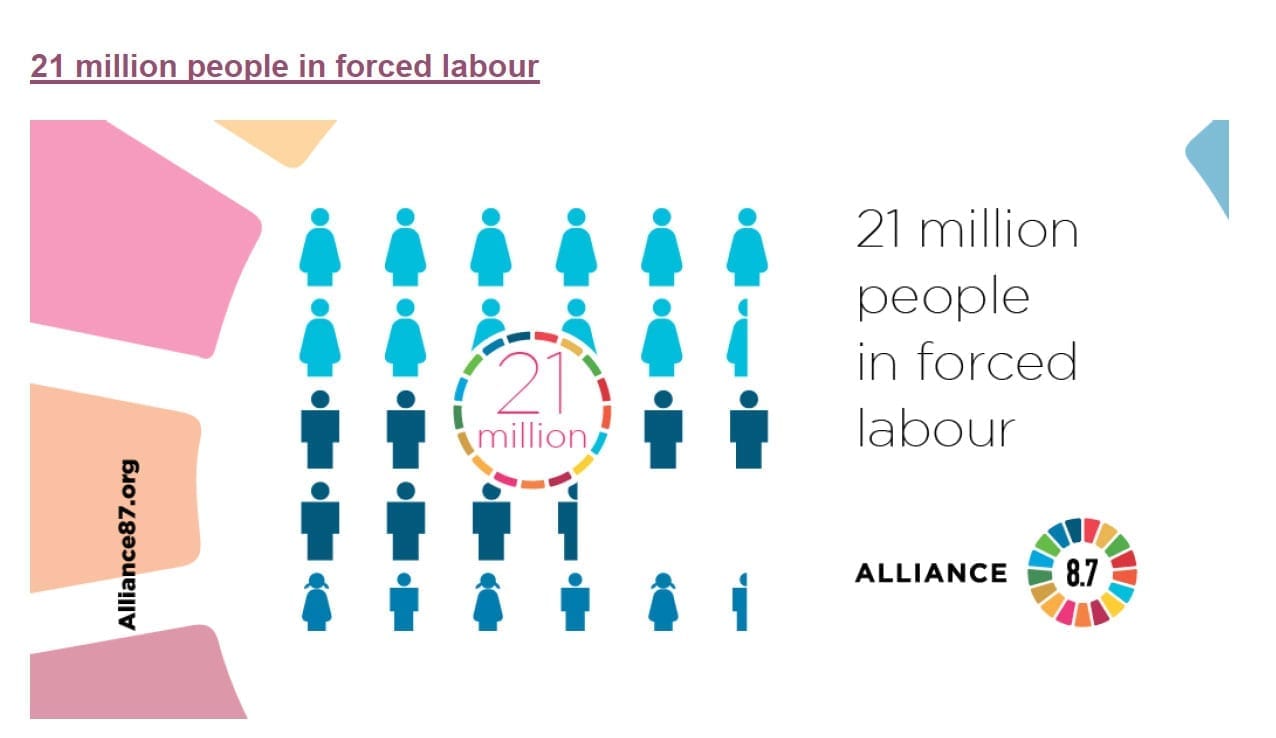When the employer of a migrant domestic worker takes her passport and refuses to return it if she seeks to leave, that is forced labor.
When a family works at a brick kiln to pay off a debt, their children prevented from attending school, that is forced labor.
When Uzbek teachers and doctors are mandated by the government to spend two months each fall picking cotton, that is forced labor.
Around the world, nearly 21 million people are forced laborers—11.4 million women and girls and 9.5 million men and boys. Ninety percent of forced labor takes place in the private economy, where it generates $150 billion in illegal profits per year.
Today, an International Labor Organization (ILO) Protocol on Forced Labor enters into force, requiring countries that ratify it to ensure the release, recovery and rehabilitation of people living in modern slavery. Adopted by the ILO in 2014, the protocol also protects workers from prosecution for any laws they were made to break while they were in forced labor.
The protocol and the accompanying recommendation supplement the 1930 ILO standard covering forced labor, Convention 29, and gives “new impetus to the global fight against all forms of forced labor, including trafficking in persons and slavery-like practices,” according to the ILO.
The protocol also bolsters the ILO’s 1957 Abolition of Forced Labor Convention 105. (Here’s a summary of the two forced labor conventions and the protocol.)
Protocol Would Compensate Those in Forced Labor
Among its provisions, the protocol:
- Guarantees forced laborers access to justice and compensation—even if they’re not legal residents of the country where they work.
- Protects individuals, especially migrant workers, from possible abusive and fraudulent practices during the labor recruitment and placement process.
- Requires employers to exercise “due diligence” to avoid modern slavery in their business practices or supply chains.
Nigeria was the first country to ratify the protocol and since then, eight more countries have done so. The ILO is urging people to join its 50 for Freedom campaign, which aims for 50 countries to ratify the protocol by 2018 to be truly effective.
Join Campaign Urging Countries to Pass Protocol!
Send a message to your labor minister urging passage of the protocol here. The action is hosted by the International Trade Union Confederation (ITUC), which is a member of the 50 for Freedom coalition, as is the Solidarity Center.
You also can sign up to get more information on the campaign and spread the word to your networks and on social media with the hashtag #50FF.
Additional 50 for Freedom materials include:

